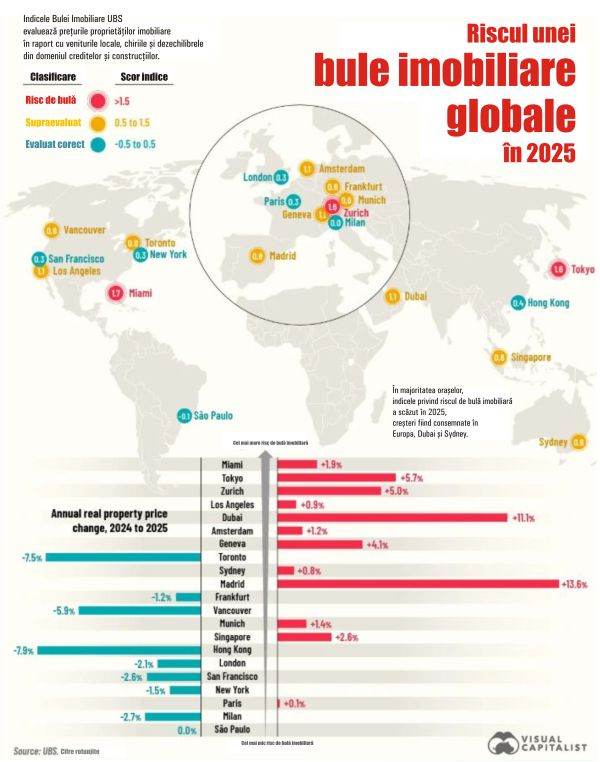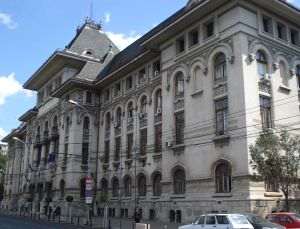Globally, real estate markets have cooled in recent years, with high mortgage rates and unaffordable prices affecting demand in many cities, according to visualcapitalist.com, which notes that, however, while the risks of a real estate bubble have diminished in many markets, home prices in popular areas such as Miami and Tokyo continue to rise, fueling the risk of a bubble.
The source presents a ranking of the cities with the highest risk of a bubble worldwide, based on the UBS Global Real Estate Bubble 2025 Index.
• The most overheated real estate markets
The UBS index assesses real estate markets around the world using a series of indicators, including price-to-income ratios, price-to-rent ratios and trends in mortgage lending and construction activity. Cities are classified into three broad categories based on their index score:
Bubble risk: >1.5
Overvalued: 0.5 to 1.5
Correctly valued: -0.5 to 0.5
The 2025 ranking of cities based on the UBS Real Estate Bubble Index score, along with the annual change in real prices, shows that most cities have seen a decrease in their bubble risk since 2024, with Toronto and Hong Kong recording the largest reductions.
However, bubble risk has increased in Miami, which ranks first with a score of 1.73, supported by rising house prices. Tokyo and Zurich are also above the critical 1.5 threshold, taking second and third place. Los Angeles (1.11) and Dubai (1.09) follow.
Several real estate markets fall into the overvalued range but remain below bubble risk territory, according to the source cited. Among them is Madrid, with a score of 0.77, which saw the strongest increase in real house prices, up 13.6% between 2024 and 2025.
Dubai, another notable city in the overvalued category, has seen prices rise by more than 11% year-on-year. According to UBS, average real prices in Dubai have risen by about 50% in the past five years. However, prices could fall in 2026 on the back of a record increase in supply.
• Cities with low bubble risk
Several real estate markets are undergoing corrections after post-pandemic price increases. Toronto, one of the world's most inaccessible housing markets, saw its bubble risk score plummet, with real home prices falling 7.5%. Hong Kong saw an even bigger price decline of 7.9%, pushing it into the fair-value housing category, the source said.
Other cities including Vancouver, Frankfurt, London and San Francisco also reported price declines as affordability constraints and higher borrowing costs hurt demand.
Miami, with a score of 1.73, is firmly in bubble risk territory. Tokyo and Zurich also exceed the bubble risk threshold of 1.5. Toronto and Hong Kong have seen the biggest drops in bubble risk over the past year.
















































